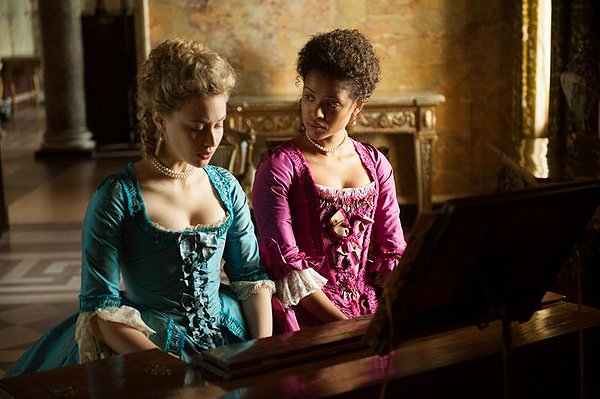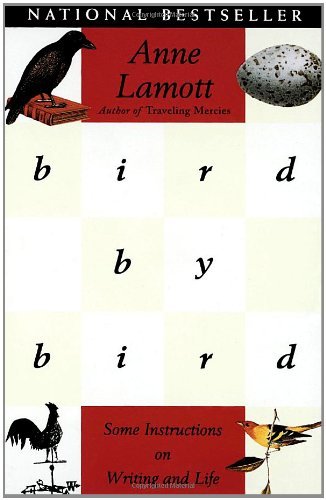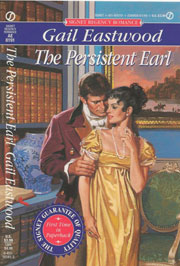 This week I saw the movie Belle. Have you had a chance to see it? Although it predates our Regency period (set in the 1780’s), it is a visual delight, from the costumes to the elegant estate settings to the docksides of London. There’s even a scene set at Vauxhall Gardens. Inspired by a portrait and a fascinating true historical footnote, it is about two young women, one white, one mulatto, who were raised together at Kenwood House by their uncle, Lord William Murray, the Earl of Mansfield, who happened to be the Lord Chief Justice of England at the time. It includes a love story, but it also is a tale about racial prejudice, an important court case, and the beginnings of the anti-slavery movement in England. It made me think (among many things) about all the matters our elegant Regency characters were expected to ignore, or at the very least, not discuss in polite company!
This week I saw the movie Belle. Have you had a chance to see it? Although it predates our Regency period (set in the 1780’s), it is a visual delight, from the costumes to the elegant estate settings to the docksides of London. There’s even a scene set at Vauxhall Gardens. Inspired by a portrait and a fascinating true historical footnote, it is about two young women, one white, one mulatto, who were raised together at Kenwood House by their uncle, Lord William Murray, the Earl of Mansfield, who happened to be the Lord Chief Justice of England at the time. It includes a love story, but it also is a tale about racial prejudice, an important court case, and the beginnings of the anti-slavery movement in England. It made me think (among many things) about all the matters our elegant Regency characters were expected to ignore, or at the very least, not discuss in polite company!
We know the rules of society were strict and multitudinous. Among them was the idea that conversation in polite company should always be “cheerful and uplifting”. It was never to include politics, or religion, or –heaven forbid!– vulgar acknowledgments of the less-than-perfect world outside the magic cloud of wealth and privilege that the highest classes lived in. Never anything that might cause distress or discomfort. As a line in the movie says, “as if by ignorance we might escape it.”
 The movie beautifully portrays Lord Mansfield’s belief in the value and purpose of “the rules” that maintained social order, and also Belle’s awakening to her own limitations, her hunger to learn more, and her frustration at having her questions turned aside. Slavery and racial prejudice were not topics to be discussed at the table! Her direct attempts to ask questions at breakfast clearly break the social rules, and the movie uses three breakfast scenes to show her attempts to comply and her gradual transition to other methods of pursuing the truth.
The movie beautifully portrays Lord Mansfield’s belief in the value and purpose of “the rules” that maintained social order, and also Belle’s awakening to her own limitations, her hunger to learn more, and her frustration at having her questions turned aside. Slavery and racial prejudice were not topics to be discussed at the table! Her direct attempts to ask questions at breakfast clearly break the social rules, and the movie uses three breakfast scenes to show her attempts to comply and her gradual transition to other methods of pursuing the truth.
 In the movie, the extreme complications of social status and jockeying for position are illustrated in dozens of nicely nuanced ways. Belle’s life is defined by both her birth into a noble family, and the color of her skin. She is made an heiress, while her cousin Elizabeth is dowerless. Belle is illegitimate, but her father loved and claimed her. Elizabeth’s birth was legitimate, but her father has abandoned her. Which elements trump which? Even the young women, raised as sisters, argue about it –but only in the privacy of their chamber, of course.
In the movie, the extreme complications of social status and jockeying for position are illustrated in dozens of nicely nuanced ways. Belle’s life is defined by both her birth into a noble family, and the color of her skin. She is made an heiress, while her cousin Elizabeth is dowerless. Belle is illegitimate, but her father loved and claimed her. Elizabeth’s birth was legitimate, but her father has abandoned her. Which elements trump which? Even the young women, raised as sisters, argue about it –but only in the privacy of their chamber, of course.
Is it any wonder that thick tomes of social guidelines were published? From Lord Chesterfield’s 18th century Letters to his son and similar publications, to The Mirror of Graces (1811) and on, the rules could cover the proper way to carry your hat if you removed it, and might even dictate when Belle could and could not join her family for dinner. But even those revered resources probably did not cover the untenable situation of Dido Elizabeth Belle Lindsay –both the movie version and the real woman we know so little about. As her character says in the movie, “I don’t feel as though I fit anywhere!”
The real Dido Belle did marry, and apparently had two sons. Her life, while far more comfortable than most of her counterparts in that period, still could not have been easy. I like thinking that she faced it with the same courage as her movie character does. If you haven’t had a chance, try to catch the movie! There’s also a book by Paula Byrne –has anyone read it? With all the social freedom we have today, do you think we still sometimes duck issues by falling into that mindset of ignoring them? Do we have any topics left that are still taboo in polite company today?



 If you write, what do you when a spell of doubting happens to you? Are you a planner or a pantser, or a combination? What resources do you turn to when your faith needs to be bolstered? Have you read the ones I mentioned? If you’re a reader, have you ever asked authors where their ideas came from? If you have, what answers did you get?
If you write, what do you when a spell of doubting happens to you? Are you a planner or a pantser, or a combination? What resources do you turn to when your faith needs to be bolstered? Have you read the ones I mentioned? If you’re a reader, have you ever asked authors where their ideas came from? If you have, what answers did you get?
 I used to call the lovely but inaccurate Allan Kass cover for my second book, The Persistent Earl, a “visual epilogue”, explaining that it showed the artist’s vision of the hero and heroine together after the story was over. (The heroine, a young widow, wears half-mourning throughout the book, but as you see here, on the cover she is in a beautiful gold satin gown.) Readers always thought that made perfect sense! Can you imagine the rest of this scene without having the words? I consider reading a collaborative process, and even though as an author I give the reader the specifics of my story, each reader brings some of her own imagination into the mix as she reads. I think that’s one of the great pleasures of reading, and one of the (many) reasons movie adaptations of our favorite books don’t always succeed –one director’s view of the story may not match up well with the personal version we have envisioned in our own heads. Ah, but that’s another entire topic.
I used to call the lovely but inaccurate Allan Kass cover for my second book, The Persistent Earl, a “visual epilogue”, explaining that it showed the artist’s vision of the hero and heroine together after the story was over. (The heroine, a young widow, wears half-mourning throughout the book, but as you see here, on the cover she is in a beautiful gold satin gown.) Readers always thought that made perfect sense! Can you imagine the rest of this scene without having the words? I consider reading a collaborative process, and even though as an author I give the reader the specifics of my story, each reader brings some of her own imagination into the mix as she reads. I think that’s one of the great pleasures of reading, and one of the (many) reasons movie adaptations of our favorite books don’t always succeed –one director’s view of the story may not match up well with the personal version we have envisioned in our own heads. Ah, but that’s another entire topic.



